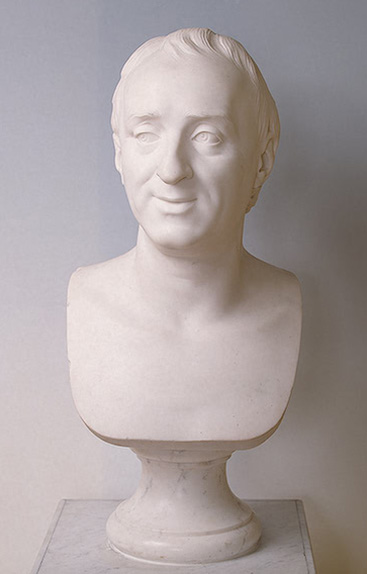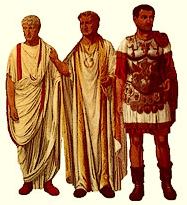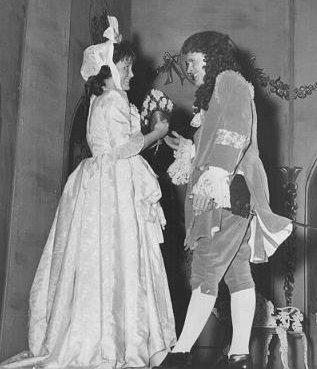
Thursday, May 31, 2012
Daily Dose
 From Two Americans: Truman, Eisenhower, and a Dangerous World, by William Lee Miller
From Two Americans: Truman, Eisenhower, and a Dangerous World, by William Lee MillerNEITHER
"Neither of them was likely to become a lyric poet or a metaphysician."
From Chapter One, Boy's Life, IV
Wednesday, May 30, 2012
Daily Dose
 From The Black Album, by Hanif Kureishi
From The Black Album, by Hanif KureishiTOO
"How he'd been drowning his senses in the past hours! What illusions he'd been subject to! What torrents of drug-inspired debris he had allowed to stream through his head! What banal fantasies he believed were visions! And on Baker Street Station, too!"
From Chapter 11
Labels:
Daily Dose,
Hanif Kureishi,
novelists,
Quotations
Tuesday, May 29, 2012
Popular Superstitions
Labels:
Addison,
essayists,
Essays,
reading aloud,
religion,
Spectator,
superstitions,
videos
Daily Dose

From Sentimental Education or, The History of a Young Man, by Gustave Flaubert
SHE
"She complained of the poets, who misrepresent the facts of life, then she raised her eyes toward heaven, asking him what was the name of a star."
From Chapter XV, "How Happy Could I Be With Either"
Monday, May 28, 2012
Daily Dose

From The $30,000 Bequest and Other Stories, by Mark Twain
OFTEN
"Often a quite assified remark becomes sanctified by use and petrified by custom; it is then a permanency, its term of activity a geologic period."
From Does the Race of Man Love a Lord?
Labels:
Daily Dose,
Mark Twain,
Quotations,
short stories
Sunday, May 27, 2012
Daily Dose
 From Letters from the Earth, by Mark Twain
From Letters from the Earth, by Mark TwainAT LAST
"And at last came the monkey, and anybody could see that man wasn't far off, now. And in truth that was so. The monkey went on developing for close upon five million years, and then turned into a man -- to all appearances."
From The Damned Human Race
Labels:
Daily Dose,
evolution,
Mark Twain,
Quotations
Saturday, May 26, 2012
Daily Dose

From Renoir My Father, by Jean Renoir
WHAT
"A visitor once remarked to him: 'What I like about this brand of brandy is that the quality is always the same. There's never any unpleasant surprise.' 'What a good definition of nothingness,' answered Renoir."
From Chapter 25
Labels:
classics,
Daily Dose,
directors,
Jean Renoir,
memoirs,
painting,
Pierre Auguste Renoir,
Quotations
Friday, May 25, 2012
Quick Review
The greatest book ever written by one great artist who happens to be the son of another. A unique book. I've now read the book twice, first as a biography of the most exuberant and humane of the great Impressionists, and then again as a nearly perfect memoir of an equally great artist's coming of age in the shadow of a famous father.
I can't think of another book so suffused with genuine affection and yet without so much as a sentimental phrase, or a misjudged scene. Renoir fils, the master of French cinema, describes the father he saw, particularly the artist in old age, his brushes tied to his crippled hands, the father the son came to know a bit better only when the son came home to recover from war. It is a portrait of remarkable tenderness, but also careful and objective, not just about family, but art, about what can and can not, what should be and often isn't said.
And more than anything, this is a book about women: the women in both their lives, the women who were so vital to them both, and to their art. There wasn't another painter since the Renaissance to whom women were more inspiring, more necessary, more beautiful. This was the chiefest gift from father to son, this appreciation and recognition of the necessity of women. And then there is country cousin, a simple girl who posed for the painter so often and so famously, not his wife or his son's mother, but the woman who really raised Jean, the woman so necessary to them all, their beloved Gabrielle. Like Colette's mother, Sido, this good woman's spirit and image linger in the mind long after the book has been read.
This book, like the films of Jean Renoir, I now number among the happiest discoveries of the middle of my life. I know of no better book on what it means to be an artist, and a son.
I can't think of another book so suffused with genuine affection and yet without so much as a sentimental phrase, or a misjudged scene. Renoir fils, the master of French cinema, describes the father he saw, particularly the artist in old age, his brushes tied to his crippled hands, the father the son came to know a bit better only when the son came home to recover from war. It is a portrait of remarkable tenderness, but also careful and objective, not just about family, but art, about what can and can not, what should be and often isn't said.
And more than anything, this is a book about women: the women in both their lives, the women who were so vital to them both, and to their art. There wasn't another painter since the Renaissance to whom women were more inspiring, more necessary, more beautiful. This was the chiefest gift from father to son, this appreciation and recognition of the necessity of women. And then there is country cousin, a simple girl who posed for the painter so often and so famously, not his wife or his son's mother, but the woman who really raised Jean, the woman so necessary to them all, their beloved Gabrielle. Like Colette's mother, Sido, this good woman's spirit and image linger in the mind long after the book has been read.
This book, like the films of Jean Renoir, I now number among the happiest discoveries of the middle of my life. I know of no better book on what it means to be an artist, and a son.
Labels:
classics,
directors,
Goodreads,
Jean Renoir,
memoirs,
painting,
Pierre Auguste Renoir,
quick review
Daily Dose
 From Tom Sawyer Abroad, by Mark Twain
From Tom Sawyer Abroad, by Mark TwainMAY
"All the journeyings I had ever done had been purely in the way of business. The pleasant May weather suggested a novelty -- namely, a trip for pure recreation, the bread-and-butter element left out."
From 4, Some Rambling Notes of an Idle Excursion
Labels:
Daily Dose,
Mark Twain,
Quotations,
Sequels,
Tom Sawyer
Thursday, May 24, 2012
Quick Review
 The Body in the Library by Agatha Christie
The Body in the Library by Agatha ChristieMy rating: 2 of 5 stars
As late Christie goes, this one is well neigh perfect; funnier than ever, wicked snotty about various bounders, tennis pros and the like, and hilariously condescending to the wrong sort of girls, poor things. Plus, there's exactly the right measure of Marple in this one: neither too much -- when she can tell one village scandal too many and too apt -- nor too little -- when the reader may forget the old girl being on the scene at all.
Really don't much care for the mystery of it all anymore, when I read this sort of thing nowadays. Can't say, but I'd guess Christie wasn't too bothered about plausibility either by the time she wrote this one. Christie specially, I read now, or reread, for the fun of the setting, mean little character types, the gibes and jokes. Dame Agatha can be damned funny, and quite knowing, even if not always aware of modern realities, even then. There simply is no Marple without little maids, all in a row. Here there are good murders and bad, and a rather idiotic twist as to how, shall we say, something got misplaced, but by the time all has been revealed, I could not much care, and a good time's been had, if not by all exactly, then certainly by me.
Perfectly respectable entertainment, I must say.
View all my reviews
Labels:
Agatha Christie,
Goodreads,
mysteries,
quick review
Daily Dose
 From Barmy in Wonderland, by P. G. Wodehouse
From Barmy in Wonderland, by P. G. WodehouseDESK CLERK
"He had long realized that he was not a man of exceptional gifts, being rather one of the multitude who are dashed lucky to land a job of any kind and priceless asses if they do not stick to that job like glue. Fate had made him a desk clerk, and a desk clerk he must continue to be."
From Chapter 3
Labels:
comedy,
Daily Dose,
novelists,
P. G. Wodehouse,
Quotations
Wednesday, May 23, 2012
Quick Review
 The Tuesday Club Murders by Agatha Christie
The Tuesday Club Murders by Agatha ChristieMy rating: 1 of 5 stars
Much as I love Miss Marple? I'm sorry to say, met in short story form? Miss Marple can seem a rather supercilious old biddy. The genius of Marple in the novels is in her God-like passivity; in the small universe of St. Mary Mead, Marple hears all, knows all, remembers and puts all to rights, usually without so much as dropping a stitch or burning her chop. There's as surprisingly little Marple in a Marple novel as there is Jehovah in the New Testament; she is felt, understood to be watching, and promises judgment in the end, but mostly we see very little of... Her? This cleverly allows Christie to use all her comic gifts -- which are considerable -- to satirize her beloved English types: bloated, retired Colonels and their drinky wives, village gossips and sinister, plain-spoken children, bumbling local police and pompous experts brought in from Scotland Yard.
With Poirot, the world's most famous consulting detective, save one, Christie has to keep mostly to London and or the upper-class environs of the resort and the big country house where Poirot's clients likely might be. This is a shame, as I suspect Christie is actually much more comfortable among the upper-middle; the academics, duffers and doggy spinsters that fit so much more comfortably into village life than San Tropez. (Thus Poirot's reliance not on servants as such, since they are nearly working class and hence embarrassingly inscrutable -- to Christie at least -- as well as notoriously emotional if female and truculent if male, but rather on that substrata of upper-class life comprised of tutors and governesses, paid companions and private secretaries; decent, intelligent, sarcastic and slightly resentful, if respectably educated and middle class; Christie's people.)
Here are Marple short stories all with the common premise of a room full of folks swapping unsolved mysteries. Guess who solves the lot? Where Poirot fits better in at least a few short puzzles, and functions serviceably even when tightly wound, Miss Marple, confined to just the one drawing room, weirdly, all but ceases to be herself; here she seems a bit of an old pooh, sitting impassive over her knitting until so provoked to comment by the stupidity of everyone else present, she must finally speak up and put the lot of them, like just so many unruly children, in their proper place by providing the "obvious" solution to whatever the mystery under review. After doing this three or four times in a row, frankly, the old girl starts to sound a right old bitch, and I can't imagine the others agreeing to stick. Surely someone ought to suggest she just chime right in before letting the rest make such fools of themselves?
This is still Christie, so there's fun to be had, and some of the stories and solutions are considerably better than others, but I'm convinced now that Miss Marple, for me at least, needs more room in which to not move around much.
View all my reviews
Labels:
Agatha Christie,
mysteries,
quick review,
short stories
Daily Dose
 From The Innocents Abroad, by Mark Twain
From The Innocents Abroad, by Mark TwainWITH ALL RESPECT
"With all respect for those ancient Israelites, I cannot overlook the fact that they were not always virtuous enough to withstand the seductions of a golden calf. Human nature has not changed much since then."
From Chapter XIX
Labels:
Daily Dose,
Mark Twain,
Quotations,
The Innocents Abroad,
Travel
Tuesday, May 22, 2012
A Quick Review of Quick Reviews
 Evidently, I may yet learn to do this whole blogging thing, at which I've now been working pretty consistently for better than three years. Go figure. Old dogs, new tricks, you follow me.
Evidently, I may yet learn to do this whole blogging thing, at which I've now been working pretty consistently for better than three years. Go figure. Old dogs, new tricks, you follow me.As regards my noodling here, the most persistent complaint, if the infrequent notice of kind friends can even be so called, has been my failure to ever quite grasp the advice of dear old Polonius as to "the soul of wit." See? It's a problem. Conversationally, I'm not so bad. I can reign it in; answer yes or no, ask for diet coke with that cheese-steak, speak without semicolons. But writing? I'm just not that good.
Blogging, it has been explained to me, is all about the immediacy of response. Oh. See, it isn't that my reactions are somehow more thoughtful or considered or the like, I just... go on. This has meant, among other effects, that when I do write here, I tend to exceed the length generally understood as being appropriate to the format, AND there's the inability to let something go when all I meant to do was say, say, "Read this new book!" Won't even bother reviewing all the unfinished drafts of things I've long since forgotten my reason for starting as I never quite got to the point and can't winkle it out now from the clues left in those first four paragraphs of rhubarb.
Well, boys and girls, turns out I was doing this sort of thing properly for months now, elsewhere and simply did not realize the direct application to this enterprise, available all the time if I had but looked. Seems that once I started actually writing the occasional thumb-nail review of this or that book for Goodreads, either as I finished reading the book, or because I'd decided to put the title, with a short explanation, on some new list, I was creating exactly the kind of content readers actually expect from what is after all basically "a books blog." (Friend from the ol' country calls them this and it sounds charming, I think, despite my dislike of that word, "blog" as either noun or verb.)
When I finally tripped to the copy and paste necessary for reposting these short, sometimes very short, and some not really all that short by the standards of the medium reviews, I spent the better part of last evening doing just that. As most of what was added was dated from the original site, I dropped those in here on the corresponding dates. Done.
I like the look of these, and their unexpected conformity to the existing online standard; a starred rating system, titles linked to other reader's reviews, etc., on Goodreads, lil' cover illustrations within the body of the text, blab, blab, blab. I think the little darlings look great here.
I spent part of the evening hunting out as many of these old dears as I could find among the many titles listed that do not have any written review attached. Seeing some books I'd meant to write about here at obviously greater length but, typically never did, I've also decided to use this format to at least get my brief recommendation, as it were, on the record after all. (Thus, for example, today's Quick Review. Anyone interested enough can click on the tag under the latest and get all these Quick Reviews to date.)
What these little entries really remind me of most are those ol' bookstore reliables, the shelf-talkers, or staff recommendation cards that are still found in pretty much every surviving Independent Bookstore. Funnily enough, I'd pretty much stopped writing up those cards at the bookstore where I work, 'cause I had a few that never made it into a display, and frankly, some of those that I had written -- not really fitting on even the most generous card provided -- occasionally got edited for space. Here again, the Internet provides, no?
So... see? I'm not just drawing doodles these days, I do actually still read books and even, now and then, write a lil' somethin'.
Which, as I understand it, was what I was supposed to do. Old dog, new trick, done.
Labels:
blogging,
Goodreads,
New Books,
quick review
Quick Review
 Hogarth: A Life and a World by Jenny Uglow
Hogarth: A Life and a World by Jenny UglowMy rating: 3 of 5 stars
Yet another HUGE Jenny Uglow biography, and yet another favorite. What makes the woman such a superb practitioner of her craft, I don't know, unless it is just some alchemical formula that keeps even the longest, dullest patch of biographical exposition from seeming long, dull or just expository. I've come to not just dislike, but to actually distrust artistic biographies of such length generally, as having been written to record rather than to be read. Go figure, Uglow can do both. This puts her on the very short list of writers from whom I will read anything -- and I have; gardens, astronomy, history, etc.
And in the great, good Hogarth, the biographer has found a subject worthy of her magic. What a struggle, and such success! I always hesitate to see any one life, or artist, as representative of his or her times, but Hogarth? He is not only how we see his time, his life might be a novel of the period, and, at least in Uglow's expert telling, a great one.
One need not be familiar already with either the biographer or her subject to enjoy this big, rich book -- though I would recommend laying hands on at least some old Dover collection of Hogarth's prints as a reference, as there's not nearly enough illustration in the biography to follow the story visually, though that's, honestly, my only real complaint.
Anyone then who wants to spend some exciting time in the great, lost, wonderful, filthy, smelly, dazzling London of the 18th Century, I can't think of a better way in than Hogarth, and Uglow's Hogarth at that.
View all my reviews
Labels:
Art,
biography,
Goodreads,
Jenny Uglow,
quick review,
William Hogarth
Daily Dose

from Jailbird: A Novel, by Kurt Vonnegut
MORE
"There was more. There is always more."
From the Epilogue
Labels:
Daily Dose,
Kurt Vonnegut,
novelists,
Quotations
Monday, May 21, 2012
Quick Review
 Anthology of Japanese Literature: From the Earliest Era to the Mid-Nineteenth Century by Donald Keene
Anthology of Japanese Literature: From the Earliest Era to the Mid-Nineteenth Century by Donald KeeneSo not the kind of anthology I would ever pick up anymore, but that's because I'm not so young, not because this one isn't a masterpiece. What do I owe Donald Keene? Japanese literature in translation. This book, and so many other by Donald Keene, and the authors to whom he introduced me, are now so much a part of my reading life I'd almost forgot just how many good things I first read here.
Japanese movies and Mishima led me to this book, and this book led me to Tales of Genji of Murasaki Shikibu, and The Pillow Book of Sei Shonagon, to the great poets. This book led me to Keene's Modern Japanese Literature, and that led to Kawabata and Endo and Oe and on and on, so many truly amazing and life-changing reading experiences.
Keene's work should be celebrated, his name revered by anyone who reads Japanese literature in English. No one has done more. I will always be grateful.
Japanese movies and Mishima led me to this book, and this book led me to Tales of Genji of Murasaki Shikibu, and The Pillow Book of Sei Shonagon, to the great poets. This book led me to Keene's Modern Japanese Literature, and that led to Kawabata and Endo and Oe and on and on, so many truly amazing and life-changing reading experiences.
Keene's work should be celebrated, his name revered by anyone who reads Japanese literature in English. No one has done more. I will always be grateful.
Labels:
anthologies,
Donald Keene,
Japan,
translations
Daily Dose
 From Diderot's Selected Writings, selected and edited by Lester G. Crocker
From Diderot's Selected Writings, selected and edited by Lester G. CrockerA SINGLE TRAIT
"A single trait, one all-important trait -- and leave the rest to my imagination."
From The Salons, Chapter VII: A Little Corollary to the Preceding
Labels:
Daily Dose,
Denis Diderot,
essayists,
Essays,
Quotations,
translations
Sunday, May 20, 2012
Quick Review
Wonderful fun! I'd frankly forgotten the delight of a good, Marxist police procedural. This is one of the greatest collaborations in crime fiction, and the resulting series is a classic example of the adaptability of genre entertainment to better ends. Here, those would be a devastatingly funny critique of not only the liberal State and the reactionary capitalism barely concealed therein, but also of the ridiculous conventions of the detective story. Just here: criminals, if they're punished at all, are punished for the wrong crimes, cops shoot each other in the absence of suspects, and a detective actually solving a crime makes one's police superiors suspicious. That sounds like satire of the first order -- or yesterday's headline in the Metro section of any major American or European newspaper (you know, back when we still had newspapers, and the occasional honest headline.)
Labels:
Goodreads,
Maj Sjowall,
Martin Beck,
mysteries,
Per Wahlöö,
quick review
Daily Dose
 From The Everyman Chesterton, edited by Ian Ker
From The Everyman Chesterton, edited by Ian KerIF
"If you become King of England, you give up the post of Beadle in Brompton. If you go to Rome, you sacrifice a rich suggestive life in Wimbledon."
From The Suicide of Thought
Labels:
anthologies,
Daily Dose,
G. K. Chesterton,
Ian Ker,
Quotations
Saturday, May 19, 2012
Daily Dose
 From The Complete Poems of John Keats
From The Complete Poems of John KeatsSILVER SLUMBER
"Unfelt, unheard, unseen,
I've left my little queen,
Her languid arms in silver slumber lying:
Ah! through their nestling touch,
Who -- who could tell how much
There is for madness -- cruel, or complying?"
From Lines I.
Friday, May 18, 2012
Quick Review
 Careless Rambles by John Clare: A Selection of His Poems Chosen and Illustrated by Tom Pohrt by Tom Pohrt
Careless Rambles by John Clare: A Selection of His Poems Chosen and Illustrated by Tom Pohrt by Tom PohrtA pretty gift edition with charming new illustrations. Not quite the angry and or radical Clare that I've only recently discovered, just the gentle, rural bard of Clare's first fame. What makes this edition special, and either a lovely introduction to the poet, or a reminder to earlier readers of the poet's quiet gifts, are the charming new illustrations of Tom Pohrt.
Keep in mind, this is exactly not the kind of poetry book; it's a pretty little thing, full of bucolic little scenes of country life, illustrated with winning old stumps and woodland vignettes. As someone who grew up in something still very like the country, I've never much cared for the quaint vision thereof. I remember bugs, and manure and mean tempered old dogs and farmers who stank and spit tobacco and didn't much care for blacks and jews even though they'd met precious few of either.
Still, I've come to love and respect the poet, John Clare, and part, a considerable part of why is in these poems. He is not a sentimentalist. He is not a tourist out for a walk. He knows whereof he speaks, be it about baiting a badger or bugs, those "tiny loiterers in the barley's beard."
And then there's the genuinely attractive -- pretty, yes, -- but equally honest illustration of Tom Pohrt. His bees sting. His skies glower. The asymmetry of his trees tips them into Clare's poems and makes them right.
The result is a lovely little book.
Labels:
Goodreads,
illustrators,
John Clare,
New Books,
poetry,
quick review,
Tom Pohrt
Daily Dose

From Wise Words & Quaint Counsels of Thomas Fuller, selected and arranged by Augustus Jessopp
OF ALL
"Of all the extent of time, only the instant is that which we can call 'ours.'"
From Holy State, B. iii. C. xix. 4.
Labels:
Augustus Jessopp,
Daily Dose,
essayists,
Essays,
Quotations,
Thomas Fuller
Thursday, May 17, 2012
Daily Dose
 From Wise Words & Quaint Counsels of Thomas Fuller, selected and arranged by Augustus Jessopp
From Wise Words & Quaint Counsels of Thomas Fuller, selected and arranged by Augustus JessoppTHE PYRAMIDS
"The pyramids themselves, doting with age, have forgotten the names of their founders."
From Holy State, B. iii. C. siv. 6.
Labels:
anthologies,
Augustus Jessopp,
Daily Dose,
Egypt,
essayists,
Essays,
Quotations,
Thomas Fuller
Wednesday, May 16, 2012
Daily Dose

From Montaigne's Essays, Volume One, translated by John Florio
HUDDLE-UP
"I will heere huddle-up some few ancient fashions that I remember: Some of them like unto ours, other-some farre differing from them: To the end, that having ever this continuall variation of humane things in our minde, we may the better enlighten and confirme our transported judgement."
From The First Booke Chap XLIX
Labels:
Daily Dose,
essayists,
Essays,
John Florio,
Michel de Montaigne,
Quotations,
translations
Tuesday, May 15, 2012
Daily Dose

From Montaigne's Essays, Volume One, translated by John Florio
WE ARE
"We are taught to live, when our life is well-nigh spent."
From The First Booke Chap XXV
Labels:
Daily Dose,
essayists,
Essays,
John Florio,
Michel de Montaigne,
Quotations,
translations
Monday, May 14, 2012
Daily Dose

Montaigne's Essays, Volume One, translated by John Florio
HAD WE
"Had we beene borne needing petti-coats and breeches, there is no doubt, but nature would have armed that which she hath left to the batterie of seasons, and furie of wethers with some thicker skin or hide, as shee hath done our finger ends, and the soales of our feet."
From The First Booke Chap XXXV
Labels:
Daily Dose,
essayists,
Essays,
John Florio,
Michel de Montaigne,
Quotations,
translations
Sunday, May 13, 2012
Daily Dose
 From Longfellow: Poems and Other Writings, selected and annotated by J. D. McClatchy
From Longfellow: Poems and Other Writings, selected and annotated by J. D. McClatchyEVERY READER
"Every reader has his first book. I mean to say, one book among all others, which in early youth first fascinates his imagination, and at once excites and satisfies the desires of his mind. To me this first book was the Sketch Book of Washington Irving."
From Address on the Death of Washington Irving
Saturday, May 12, 2012
Daily Dose
 From Cranford, by Elizabeth Gaskell
From Cranford, by Elizabeth GaskellTRUE
"True, he was reported by many to be dead. But, equally true, some had said he had arrived at the dignity of Great Lama of Thibet."
From Chapter 11, Samuel Brown
Labels:
classics,
Cranford,
Daily Dose,
Elizabeth Gaskell,
novelists,
Quotations
Friday, May 11, 2012
Daily Dose
From The Years of Lyndon Johnson: The Passage of Power, by Robert A. Caro
THIS
"This book is not the story of Lyndon Johnson's five year presidency as a whole, but only of its brief first phase, and the longer story will not be a triumphant one."
From the Introduction
Labels:
biography,
Daily Dose,
Lyndon Johnson,
New Books,
Quotations,
Robert A. Caro
Thursday, May 10, 2012
Daily Dose

From Studies in Murder, by Edmund Pearson
AT FIRST
"At first, Mrs. Peckham thought that there was a burglar in her own home, but it soon became apparent that the noise was outside. According to the immemorial custom of wives, she requested her husband to get up and investigate, and in the equally invariable manner of husbands, he declined."
From The Twenty-Third Street Murder
Labels:
Daily Dose,
Edmund Pearson,
Quotations,
true crime
Wednesday, May 9, 2012
Daily Dose

From The Provok'd Wife, by Sir John Vanbrugh
ALL
"All revolutions run into extremes, the bigot makes the boldest atheist; and the coyest saint, the most extravagant strumpet."
Heartfree, from Act V., Scene V.
Labels:
Daily Dose,
John Vanbrugh,
plays,
Quotations
Tuesday, May 8, 2012
Daily Dose
From Virtue in Danger, by John Vanbrugh
CHANGE
"For change, we're for change, to whatever it be,
We are neither contented with freedom nor thee."
Chorus, from Act V., Scene V.
Labels:
Daily Dose,
John Vanbrugh,
plays,
Quotations
Subscribe to:
Posts (Atom)



















